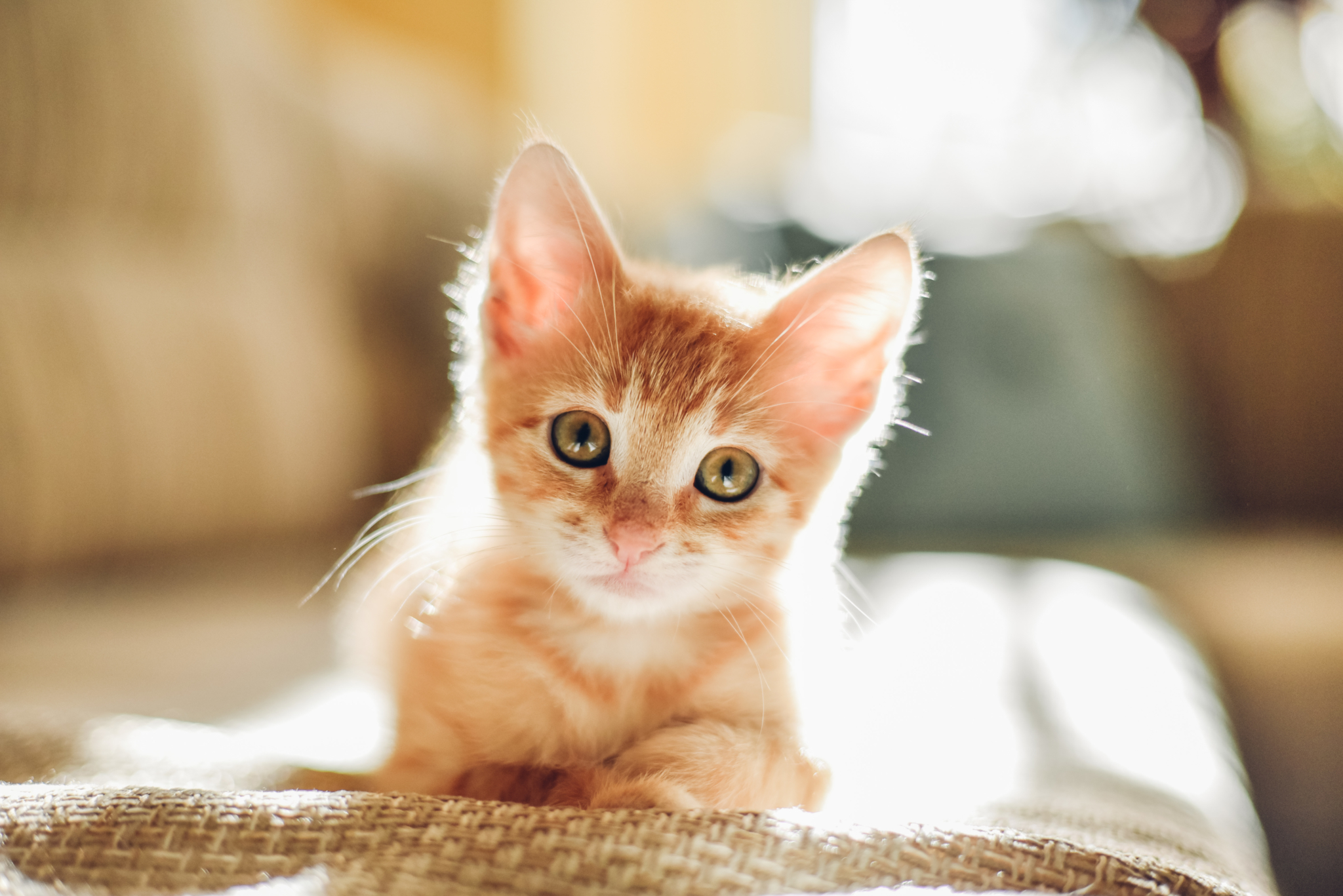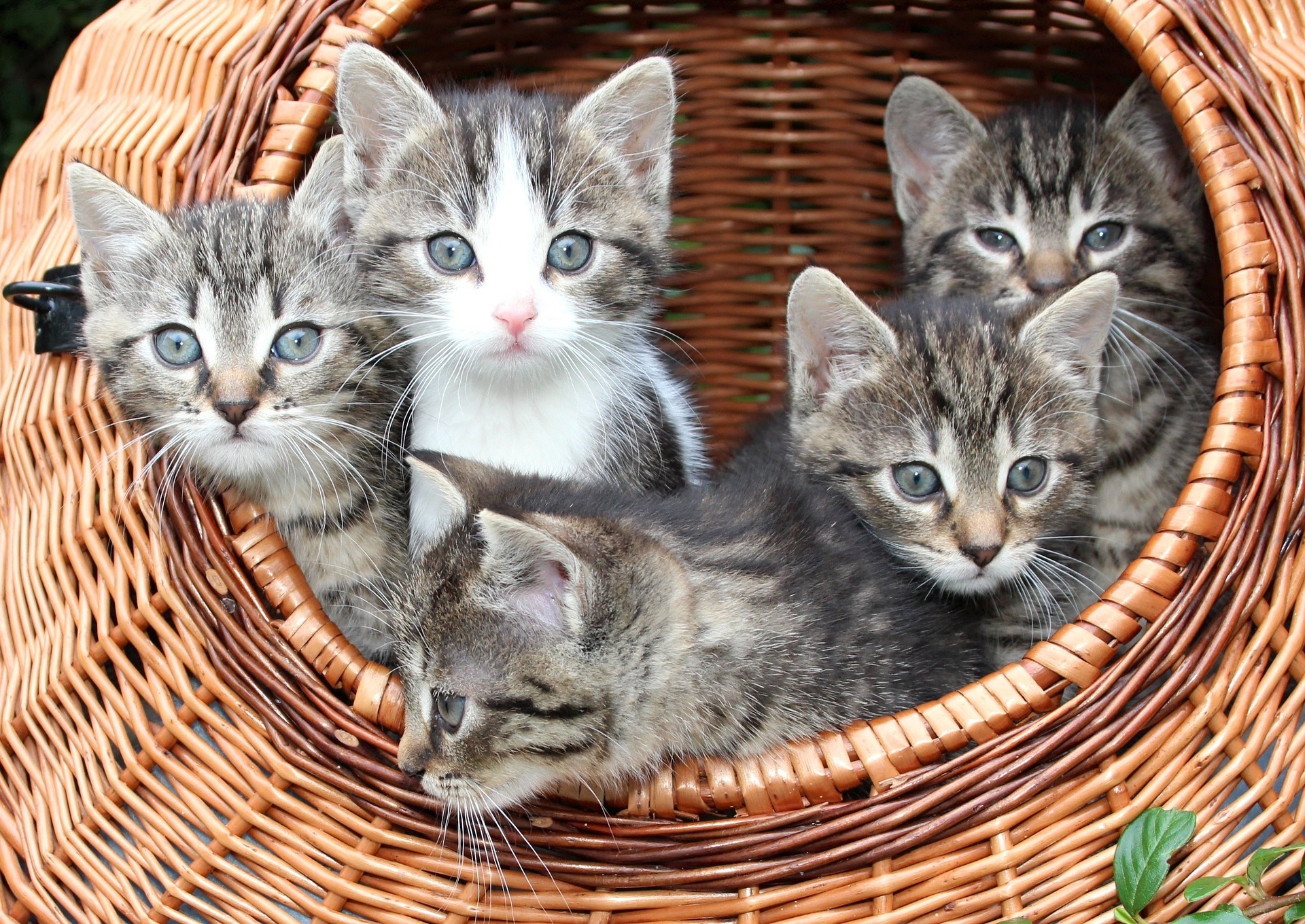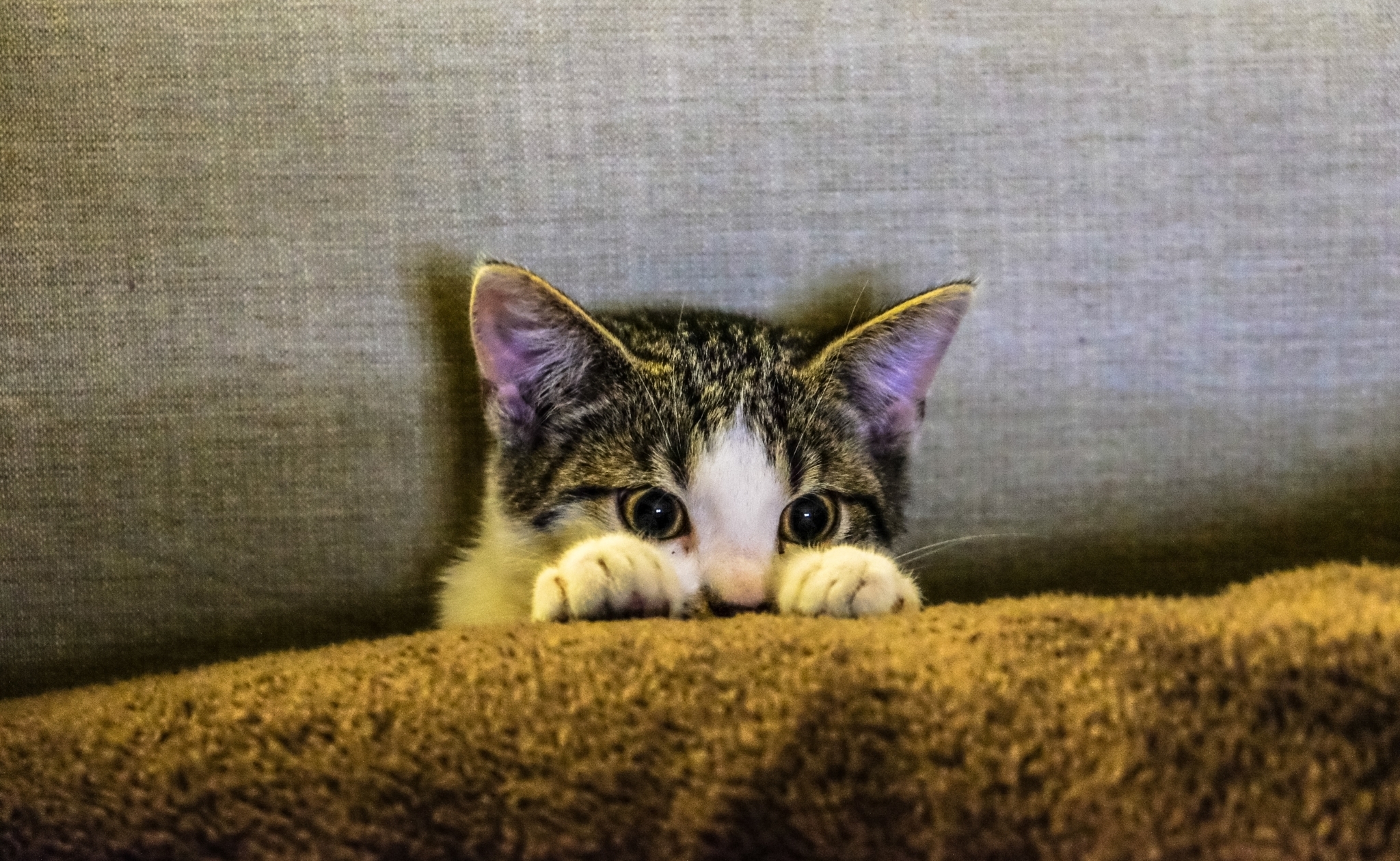Owning a kitten is a big responsibility. There’s a lot to think about when it comes to raising them into healthy adults, and their diet is one of the most important.
We spoke to our expert team and put together a guide to help you determine what to feed your pet, how often to them, and how to make dinner fun for all concerned.

When and how often to feed them
Most people get their kitten when it is around eight weeks of age. At that age it is best to feed them three to four meals a day until they are four months old, at which point you can reduce it to three meals a day until they are six months old.
When they reach six months of age, you can reduce it to two meals a day, and continue with a morning and evening meal for the rest of their life.
When you feed them is up to you, however you should space the meals out evenly throughout the day to help them get into a routine. Make sure you feed them in a quiet spot where they won’t be disturbed – including away from any resident pets or children.
Some kittens like to graze throughout the day. Providing your kitten is not getting too fat, you can leave dry food out for them to graze on. Make sure you thoroughly clean the bowl and give fresh dry food at least once a day.
This might not work if you have other animals in the house that have access to the food, or if you notice your kitten eats the whole bowl in one hit.
If you are feeding your kitten canned food in addition to the dry food, you’ll need to give them fresh meals throughout the day as the food will go off in the bowl, especially in warmer weather.
Don’t forget, cats and kittens like their canned and dry food fed separately not together.
As all diets vary in nutritional content, it's a good idea to follow the feeding guidelines for your chosen brand.
Animal Welfare League does not recommend that you feed a home cooked or raw diet to kittens as it is almost impossible to meet their exact nutritional needs.

What should I feed them?
The best way to make sure your kitten is getting all the nutrients it needs to grow big and strong is by feeding them a premium kitten diet. This type of food has been specially formulated for kittens, as they have different nutritional needs to fully grown cats.
Despite what cartoons say, you must not give your kitten cow’s milk, as they are unable to digest the lactose in the cow’s milk and it can cause diarrhoea.
As with puppies, the most common cause of diarrhoea in kittens is dietary change, so keep them on the same food that they have been eating.
If you do want to change their diet, it’s important to do it slowly over the course of five to seven days by mixing a small amount of new food with your kitten’s current food and gradually increasing the new food to original food ratio each day.
Day | % new food/% old food |
1-2 | 25%/75% |
3-4 | 50%/50% |
5-6 | 75%/25% |
7 | 100% new food |
Once your kitten has fully grown, usually at 12 months old, you can gradually move them onto adult cat food by slowly mixing it with their kitten food.

Kittens love fun mealtimes!
Some kittens are quick eaters and will gulp down their meals in the blink of an eye. This can actually be unsafe and can cause a condition called bloat, where the stomach fills with gas and flips, cutting off blood supply.
The best way to prevent bloat is to give your kitten their meals in a puzzle feeder or slow feeding bowl, that way they’ll be forced to eat slower. These feeders are also great enrichment for your kitten, which is a great way to stimulate their mind as well as tire them out physically.
When choosing a puzzle feeder, try and get one that is an appropriate level of difficulty for your cat. If they find it too difficult, they may get frustrated and give up.
Once they have mastered the easy toys, you can move them onto something more difficult.
Your kitten will love it if you make their mealtime fun! You can get Kongs, lickmats and puzzle toys for kittens which will help enrich their mind and keep them busy with their meals for longer periods of time.
Click here to find out everything you need to know about vaccinating your kitten.
